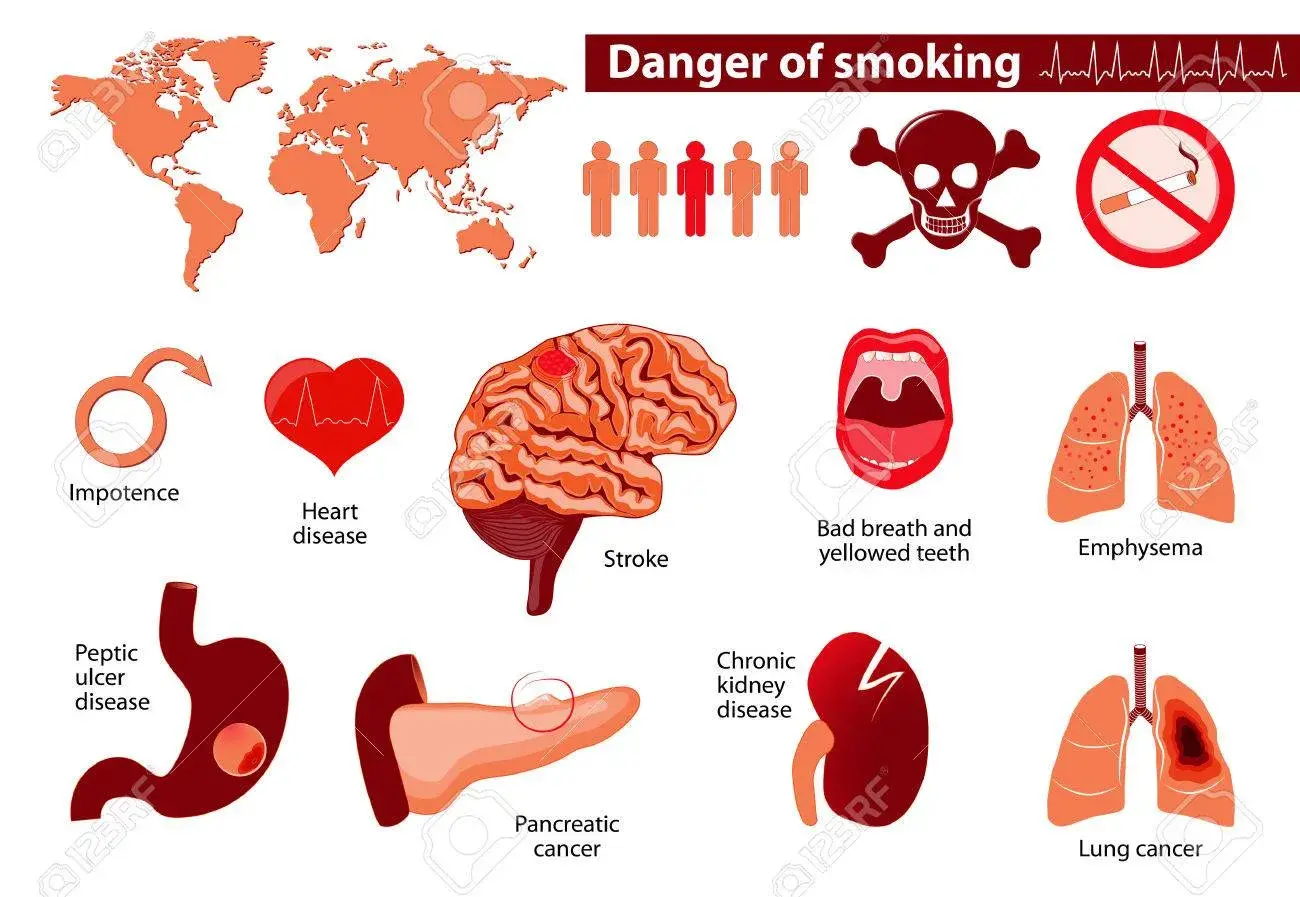How I Quit Smoking? Nicotine is the primary addictive substance in cigarettes. It causes harm to many parts of the body, including the Brain, Lungs, Heart, and Kidney. Smoking is one of the leading causes of cancer, as well as many other diseases. In this blog, you can easily understand "Oral cancer: How I quit smoking?"
Oral Cancer: How I Quit Smoking?
 Also Read: The Effects of Smoking on Male and Female Fertility
Also Read: The Effects of Smoking on Male and Female Fertility
Smoking leads to major diseases:
- Heart Diseases
- Strokes
- Bronchitis
- Emphysema
- Cataract
- Bone Diseases
- Pregnancy Problems
- Sudden Infant Death Syndrome (SIDS)
- Cancer of the Lung, Throat, Mouth, Nasal Cavity, Esophagus, Stomach, Pancreas, Kidney and many more.
About Smoking Cessation
Nicotine in cigarettes is a highly addictive substance and hence it is difficult to quit smoking. However medication, counseling, and support from family & friends help smokers to get rid of the habit. Smoking cessation helps in:
- Improving Blood Circulation
- Maintaining optimal Blood Pressure
- Improving sense of smell and taste
- Easy breathing
- Reducing coughs and wheezes
- Improving Lung function
- Reducing risk of various diseases like Cancer, Strokes, Heart diseases and much more
Symptoms of Nicotine Withdrawal
Smokers get dependent on Nicotine for performing various tasks such as concentrating, relaxing, controlling anger, controlling hunger and much more. While quitting, the smoker has to deal with uncomfortable feelings, temptations to smoke, cigarette cravings, and most importantly with withdrawal symptoms.
The withdrawal symptoms vary from person to person. Some common ones include:
- An intense craving for Nicotine
- Headaches
- Depression
- Drowsiness
- Anxiety
- Loss of Concentration
- Loss of Sleep
- Increased Appetite and Weight Gain
Medications and behaviour changes can help manage the withdrawal symptoms.
How I Quit Smoking? Treatment Modalities Available
The most common methods used to help smokers quit include:
Counselling: Counselling sessions with a health care professional helps in choosing the strategies that are likely to work best for the patient. The Counsellor provides self-help materials to motivate the smoker. The Counsellor also helps in creating a 'Quit Plan' which will:
- Combine various quit smoking strategies to keep the patient focused and motivated to quit
- Help in identifying and overcoming challenges which may occur while adopting the 'Quit Plan'
- Improve chances of quitting smoking
Medication: Medicines can double the chances of quitting smoking for good. Medical practitioners recommend the following medications:
- Nicotine Replacement Therapy (NRT): This involves the use of products like inhalers, special gums, nasal sprays, throat lozenges, or skin patches. These products contain low doses of Nicotine but do away with the toxins found in smoke. They relieve cravings for Nicotine and ease the patient's withdrawal symptoms.
- Bupropion SR and Varenicline Pills: These pills do not contain Nicotine and help with withdrawal symptoms & lessen the urge to smoke. These drugs are available with a prescription only.
Other Methods: Apart from counselling and medication the following services also help to quit smoking:
- Mobile text messaging services which motivate to quit smoking
- Vaping has been proven to be very efficient for adults trying to quit smoking. According to Vape Central Group, using e-liquids with minimum amounts of nicotine can help you with nicotine cravings and withdrawal symptoms.
- Toll-free helpline numbers which offer information and guidance
- Mobile applications that help prepare the patient to quit, as well as track his progress
- Support groups that offer guidance and help
Complication in Management
The medications prescribed to quit smoking have their set of side effects. Bupropion SR and Varenicline may cause serious psychiatric problems such as:
- Behavioral Changes
- Anxiety
- Nervousness
- Suicidal Thoughts
- Depression
These medicines may also cause:
- Nausea
- Dry Mouth
- Sleeplessness
- Vivid Dreams
Medical practitioners do not recommend these medicines to:
- Pregnant woman
- People with eating disorders
- People with Kidney problems
- Patients suffering from Convulsions
- Heavy drinkers
Precautions during Treatment
The Nicotine withdrawal symptoms force many people to go back to smoking. Though these symptoms last for a week or two, most people find it difficult to handle them. They start smoking again to feel better. Smoking is a root cause for cancer, Oral Cancer Treatment Cost may vary hospital to hospital.
During the treatment, the patient may come across many challenges which may discourage him. It is significant for the patient to prepare himself mentally before starting the quitting process. It is also important for the patient to take rest and try to avoid stress during the process.
Dietary and Physical Activity Requirements during the Course of the Treatment
Diet: Quitting smoking increases the appetite of the patient. To avoid gaining weight, it is essential to eat healthy food. Intake of whole grains, fresh fruits, and vegetables helps in this regard.
Physical Activity: Physical activity such as exercises, and walking, may help reduce Nicotine cravings and relieve some of the withdrawal symptoms.
Risk of Infection to other Family Members
Smoke from a cigarette or that exhaled by smokers can affect the health of a nonsmoker. It may lead to:
- Heart Diseases
- Lung Cancer
- Asthma
- Respiratory Infections
- Ear Infections and many more diseases
Prevention to Avoid Recurrence
How I Quit Smoking? It is common for the smoking habit to relapse, especially after the first attempt to quit. Some of the common factors that trigger the habit include:
- Being in the company of smokers
- Feeling lonely
- Overworking
- High level of stress
- Pessimistic attitude and much more
It is important for the patient not to give up hope and to keep trying to quit. Most smokers make several attempts before they finally get rid of the habit.
Support from Family
The support from family and friends is an important aspect to help a smoker quit smoking. Family and friends, especially those who are former smokers, can help with their guidance. Other family members can try to avoid creating circumstances that would remind the patient about smoking and increase their craving. "Oral Cancer: How I Quit Smoking?"
Looking for cancer treatment in Jaipur? Narayana Hospital Jaipur offers comprehensive care and world-class treatment options to cancer patients. Check them out! Also, read about: Why Should I Quit Smoking?
Reviewed by







